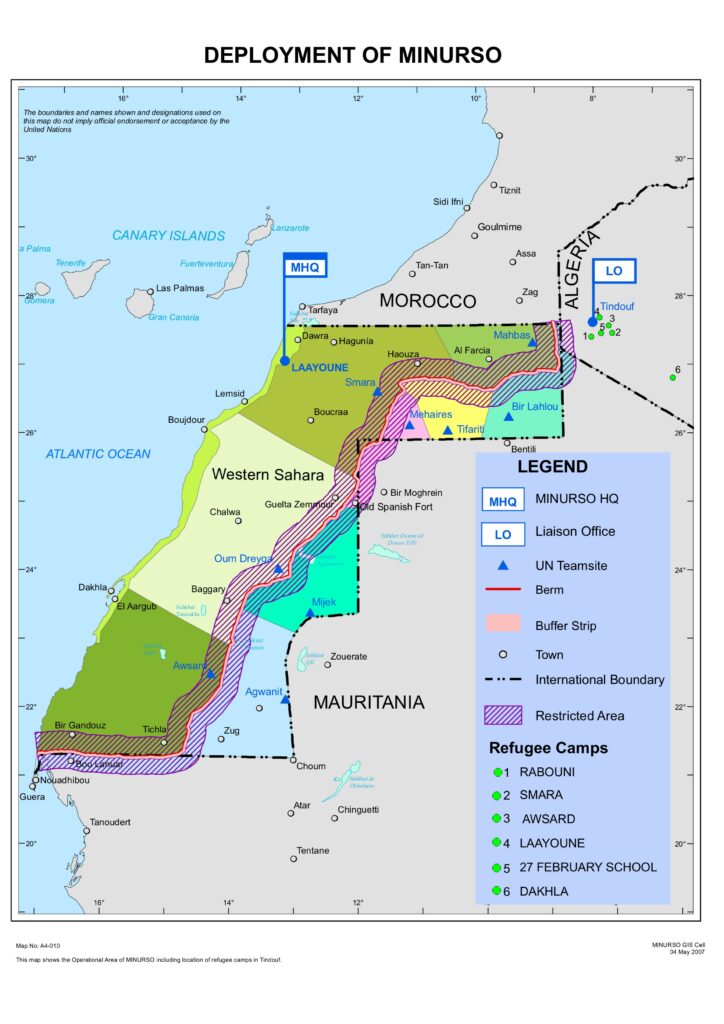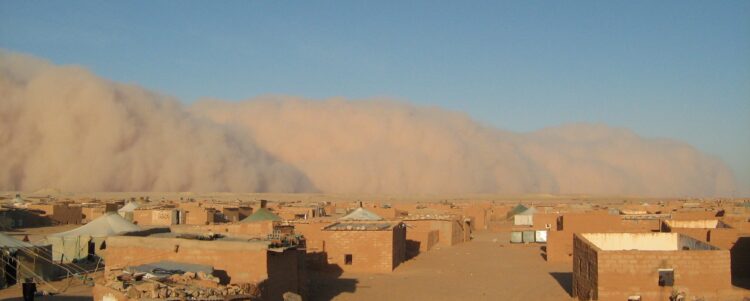Garama champions the right of excluded peoples to be represented in global climate negotiations, governance and finance. We have been supporting the government of the Sahrawi Arab Democratic Republic with its climate diplomacy, including coordination of its first Nationally Determined Contribution and scientific/technical support to Sahrawi representatives at international climate meetings.
Structural inequalities and exclusion related to economic conditions, political economy, and other factors such as conflict, are key drivers of vulnerability to climate change. These factors operate at multiple scales, from the local to the global. Even the systems established to address climate change can increase vulnerability to it, by reinforcing existing inequalities. An example of this is the exclusion from systems of global climate governance and finance of peoples lacking state representation.
Since 2020, we have been providing support on climate diplomacy to the government of the Sahrawi Arab Democratic Republic, the recognised representative of the people of Western Sahara, one of the world’s last non-self-governing territories and the only one (except Gibralter) that is not a small island. Western Sahara is subject to an ongoing territorial conflict between the Sahrawi government and the Kingdom of Morocco, and some 200,000 Sahrawis live as refugees in neighbouring Algeria. Displacement to the desert interior has increased their exposure and vulnerability to worsening climate hazards including heat extremes, water scarcity and flooding. The conflict has prevented the Sahrawi Republic from being recognised by the United Nations as a sovereign state, resulting in its exclusion from climate negotiations and other processes under the UNFCCC. The UNFCCC has endorsed two Nationally Determined Contributions or NDCs submitted by Morocco that include emissions targets and mitigation actions dependent on the development of renewables in occupied Western Sahara.
Garama supported the Sahrawi Republic in the development of its first indicative NDC, launched to coincide with COP26 in Glasgow. Since then, we have provided ad hoc scientific and technical support to Sahrawi representatives at international climate meetings, including the Africa Climate Summit in Nairobi in September 2023. We have also prepared a briefing on the role of the Western Sahara conflict in driving exposure and vulnerability, and undermining the Sahrawi’s capacity to adapt to climate change.
Header image: dust storm over Auserd refugee camp, Algeria. Photo from an anonymous Sahrawi source via Bachir Mehdi.

